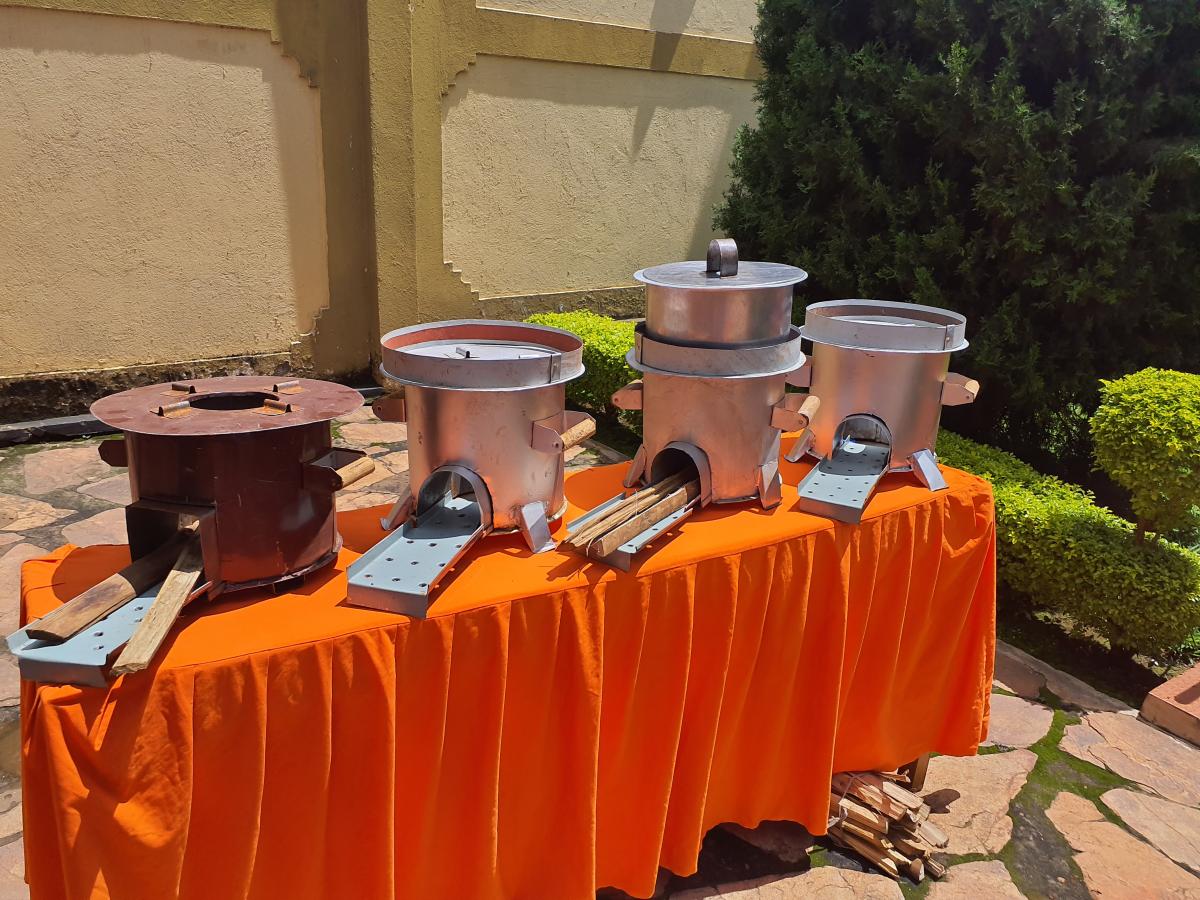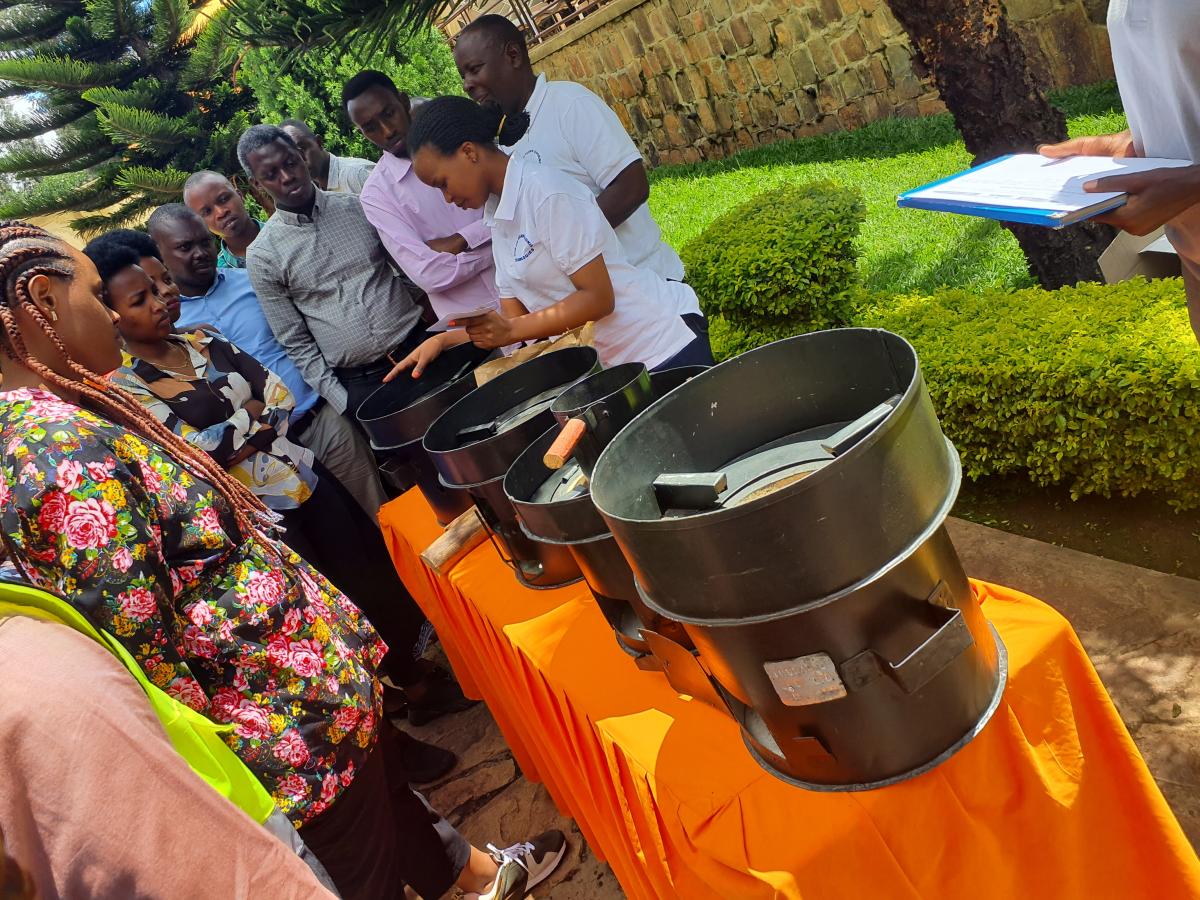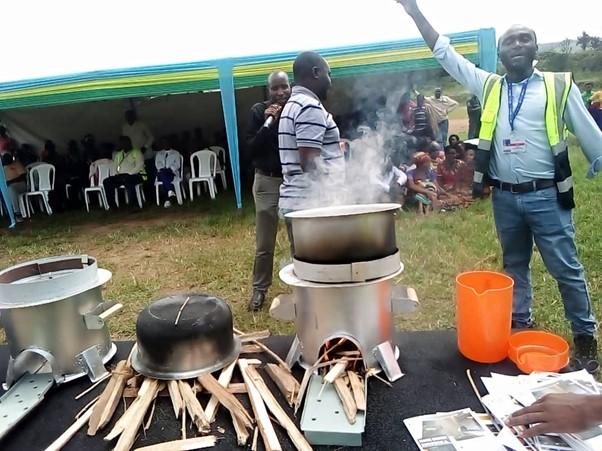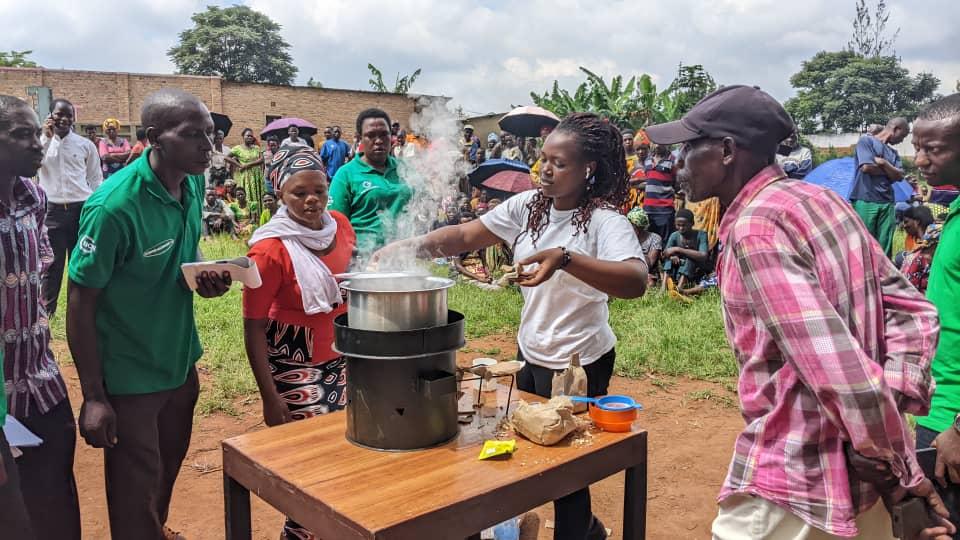Rwanda: 7000 households in Eastern Province to acquire improved cooking stoves by December 2023
From 11th to 22nd
December 2023, Enabel through TREPA project (Transforming Eastern Province through
Adaptation to Climate change), is conducting an Improved Cooking Stove
(ICS) dissemination
campaign in all the 7 districts
of Eastern Province that will leave 7000 households with cooking stoves (1000
stoves per district).
The project envisions to provide
100,000 improved cooking stoves to Eastern Province residents by 2027 to help the community reduce
pressure on forest resources, thereby preserving the environment.
This ICS dissemination
campaign aims at presenting, demonstrating a range of selected stoves that reduce emission in kitchen and well
adapted to different types of fuel locally used
(wood and crop residue).
The dissemination campaign brings
together TREPA project beneficiaries including district residents and members
of the 36 Private Forest Management Units (PFMU), 28 Agroforestry landscapes, 7
Community Biodiversity Sancta (CBS) to assess
the proposed ICS and choose the ones fitting well with their cooking
habits.
To ensure adoption of ICS use, local ICS animators
will continue to support the proper use of stoves with adequate preparation and
drying of fuelwood, and continuous education of local rural population on the
adoption of the stoves.
TREPA project is a Green Climate Fund (GCF)-funded project
(2022-2027) that aims at transforming the Eastern Province through adaptation
to climate change. It is being implemented by the International Union for
Conservation of Nature (IUCN), Rwanda Forestry Authority (RFA), World Agroforestry Centre (ICRAF), World
Vision and Cordaid and Enabel. The project promotes different landscape
restoration interventions such as tree planting, sustainable forest management
for both private and public forests, good agroforestry practices, silvopastoral
good practices and clean cooking solutions in Eastern Province of Rwanda.
TREPA project implementation is designed in the way that gives high
consideration to gender particularly for women farmers and women-headed
households. Specifically, this component of promoting clean cooking
technologies targets to impact women by reducing their exposure to unhealthy
smokes and reducing time for wood collection.
Laatste nieuws van dit project
Geen nieuws




